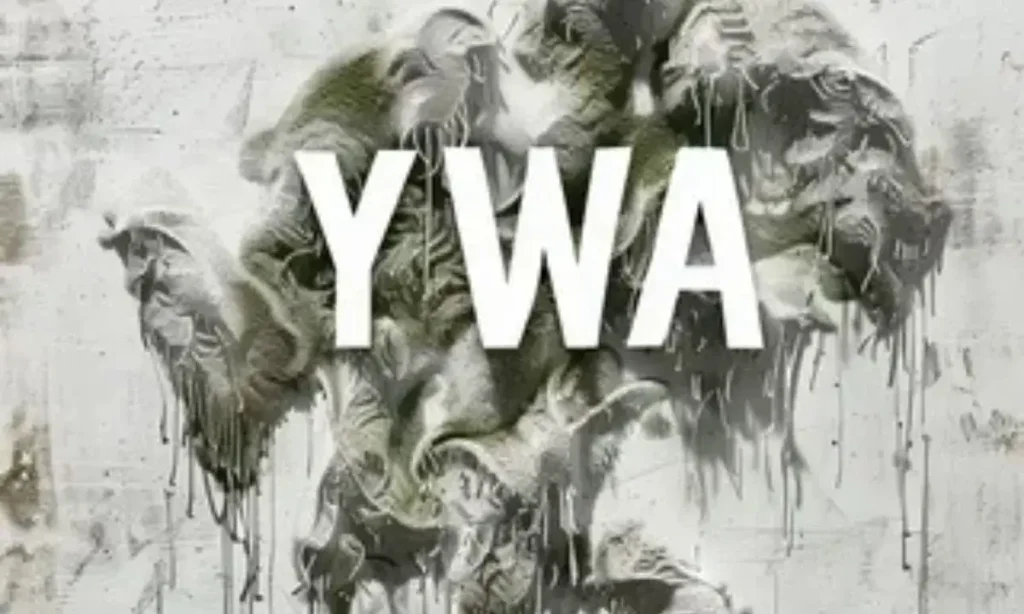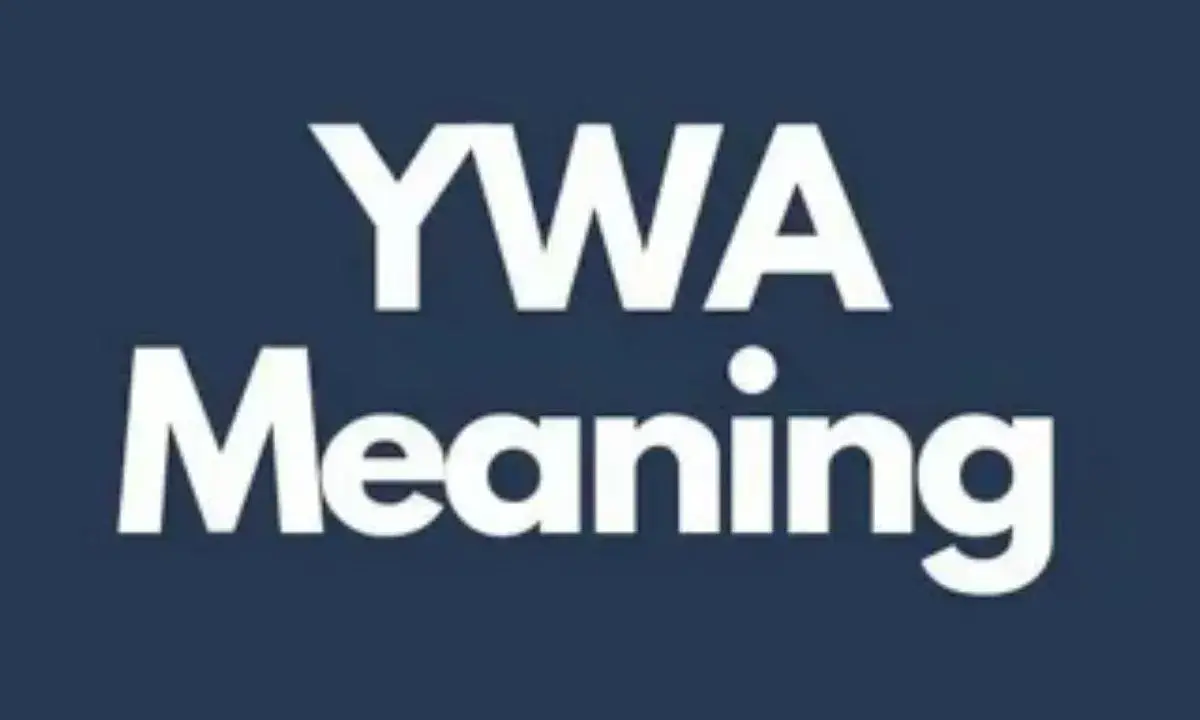In today’s fast-paced digital world, acronyms and shorthand dominate conversations across texting, social media, gaming, and dating apps. One such abbreviation gaining traction is YWA. If you’ve ever stumbled upon “YWA” in a chat and wondered what it meant, this guide will break it down for you. We’ll cover the definition, examples, history, evolution, usage contexts, misconceptions, and etiquette surrounding YWA.
Definition & Meaning of YWA
YWA is a versatile acronym that can mean different things depending on context. The most common interpretations include:
- You’re Welcome Anyway – often a casual or polite response to gratitude.
- You Were Awesome – frequently used to compliment someone, especially in gaming or online communities.
- You Will Anyway – less common, usually implying inevitability in a conversation.
The meaning depends heavily on the conversation tone, platform, and the relationship between the communicators. Understanding context is key, as a misread YWA could be mistaken for sarcasm or dismissiveness.
Key point: YWA is mostly informal and friendly, and it’s rarely used in professional emails or formal communications.
Example in a Text Conversation
Here are realistic examples of how YWA appears in everyday messaging:
- Texting Example:
Alex: “Thanks for helping me with my homework!”
Jamie: “YWA! Happy to help.” - Social Media Example:
Tweet: “Just completed my first 5k run!”
Reply: “YWA! That’s amazing 💪” - Gaming Example:
Player1: “Thanks for covering me in that match.”
Player2: “YWA! We make a great team!” - Dating App Example:
Match1: “Thanks for the great chat tonight 😉”
Match2: “YWA 😉 Can’t wait to talk more.”
Notice how the tone changes depending on platform: casual and friendly in texts, complimentary in gaming, flirty in dating apps.
Background & History
The origin of YWA is somewhat obscure, but it emerged in the early 2010s alongside the rise of internet slang and texting acronyms. Platforms like forums, instant messaging apps, and early social media sites helped popularize shorthand expressions to save time and convey tone quickly.
Digital communication evolved quickly, and YWA became a natural part of informal chat vocabulary, much like “LOL” (Laugh Out Loud) or “BRB” (Be Right Back).
Historical timeline:
| Period | Context of YWA Usage |
|---|---|
| Early 2010s | Forum chats and early social messaging |
| Mid-2010s | Social media replies and casual texting |
| Today | Widespread use across texting, social media, gaming, and dating apps |
Evolution of YWA
YWA has evolved in meaning, tone, and frequency of use:
- Early usage: Mostly a polite acknowledgment (“You’re Welcome Anyway”) in friend-to-friend texts.
- Gaming era: Shifted to praise (“You Were Awesome”) during multiplayer matches or esports.
- Current usage: Versatile, appearing in casual social media posts, friendly text replies, and even lighthearted flirting.
Interesting fact: Some users adapt YWA creatively with emojis to enhance emotional tone, such as “YWA 😉” or “YWA 😎.”
Usage in Different Contexts
Texting & Social Media
- YWA is most common in casual text messaging, online chat, and social media comments.
- Tone is friendly, supportive, and quick.
- Works as a polite acknowledgment without needing a full sentence.
Example Table:
| Platform | Example | Tone |
|---|---|---|
| SMS/Texting | “Thanks for helping me move!” → “YWA!” | Friendly, casual |
| Twitter Reply | “Congrats on your new job!” → “YWA! Well deserved 👏” | Supportive, social |
| Instagram DM | “Loved your post!” → “YWA! Keep shining 🌟” | Positive, encouraging |
Gaming
- YWA often expresses praise and camaraderie in multiplayer games.
- It’s a short way to acknowledge teamwork or skill.
- Commonly used on Discord, Twitch chat, and in-game messaging.
Example:
Player1: “Thanks for the backup in that boss fight.”
Player2: “YWA! Couldn’t have done it without you.”
- Comparison with other gaming acronyms:
- GG = Good Game
- WP = Well Played
- YWA = You Were Awesome (focus on individuals rather than the game outcome)
Dating Apps
- On dating platforms, YWA adds friendly or flirty nuance.
- Often paired with emojis for tone clarity.
- Misinterpretation is common if the recipient is unfamiliar with the abbreviation.
Example:
Match1: “Thanks for the fun chat!”
Match2: “YWA 😉 Can’t wait for next time.”
- Advice: Use YWA in dating contexts only with casual familiarity, not in initial cold messages.
Common Misconceptions

Despite its popularity, many misunderstand YWA:
- Assuming sarcasm: Some think “YWA” implies annoyance, but context usually clarifies tone.
- Confusing with similar acronyms: People might mix it up with “YW” (You’re Welcome), “YWAA” (You Will Always Achieve), or other variations.
- Overformal interpretation: Some think it’s professional-sounding, but it remains informal in nature.
Similar Terms & Alternatives
If you’re wondering about alternatives or related acronyms, here are some common ones:
| Acronym | Meaning | Context |
|---|---|---|
| YW | You’re Welcome | Casual texting, polite acknowledgment |
| NP | No Problem | Friendly, casual response |
| TY | Thank You | Expressing gratitude |
| YWAA | You Will Always Achieve | Motivational, less common |
| LOL | Laugh Out Loud | Express emotion, humor |
Tip: Choose your abbreviation based on tone, relationship, and platform.
How to Respond to YWA
Responding to YWA is usually straightforward:
- Simple acknowledgment: “Thanks!” or “No problem!”
- Reciprocal compliment (gaming/social media): “YW! You were awesome too!”
- Optional (dating/friendly): If flirty, a light response with emojis works.
Etiquette tips:
- Avoid overthinking—it’s a casual, friendly acronym.
- Use tone markers like emojis or punctuation to prevent misinterpretation.
Regional & Cultural Differences
YWA usage can vary by region, culture, and language:
- US & UK: Common and widely understood among teens and young adults.
- Non-English speaking regions: Less common; may require explanation.
- Cultural tone differences: Some cultures prefer full sentences over acronyms, so YWA might feel abrupt.
Fact: English-speaking online communities tend to adopt acronyms faster due to exposure to gaming, social media, and texting trends.
Is YWA Offensive?
YWA is rarely offensive, but tone can change perception:
- Friendly use: Typical in peer chats, gaming, and social media.
- Flirty use: Positive in dating apps if used appropriately.
- Potential misunderstanding: If the recipient doesn’t know the abbreviation, it may seem abrupt or dismissive.
Pro tip: When in doubt, pair YWA with emojis or a clarifying sentence.
FAQs
What does YWA stand for in texting?
- Usually “You’re Welcome Anyway,” but “You Were Awesome” is common in gaming contexts.
Can YWA be used professionally?
- Rarely. Stick to full sentences or standard responses in professional emails.
How common is YWA today?
- Moderate usage among teens, young adults, gamers, and social media users.
Is YWA the same as YW?
- Similar but not identical. YWA may carry extra tone (friendly, flirty, or enthusiastic).
Conclusion
YWA is more than just a three-letter acronym. It’s a flexible digital shorthand that bridges casual texting, social media engagement, gaming camaraderie, and even playful flirting. Understanding its meaning, context, and proper usage can help you communicate clearly and avoid misinterpretation.
Key takeaways:
- YWA varies in meaning: “You’re Welcome Anyway” or “You Were Awesome.”
- Tone and context matter more than strict definition.
- Emojis can clarify intent.
- Misconceptions exist but are easily avoided with awareness.
By mastering YWA and similar acronyms, you can navigate digital conversations smoothly, show appreciation, and connect more effectively online.

Ember Clark is an expert blogger passionate about cartoons, sharing captivating insights, trends, and stories that bring animation to life for fans worldwide.

